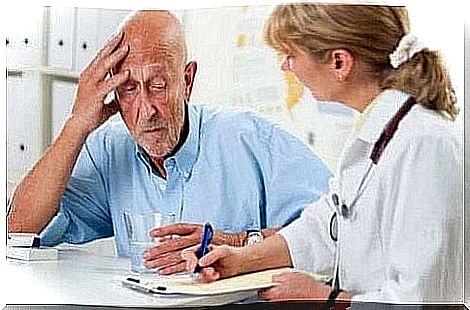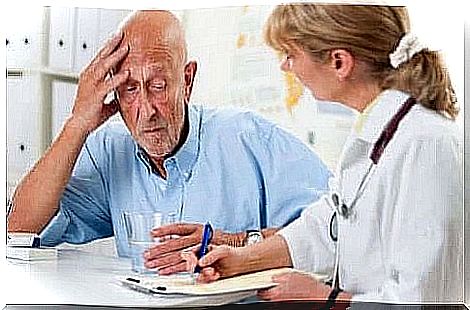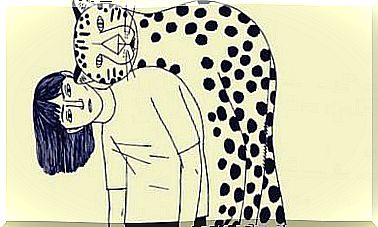Detecting Dementia During GP Visits

If someone shows signs of cognitive impairment, it is important that they see a specialist who can give a full diagnosis. In the same way, detecting dementia during a GP visit can be the key to slowing down the disease process and losing autonomy. In cases of cognitive impairment, early detection can significantly help slow down the process.
As Pastor and co (2003) claim, a late diagnosis of dementia can have consequences for the quality of life of patients and their families. On the other hand, symptoms that a doctor observes during a GP visit may be the result of a temporary condition. Thus, a completed differential diagnosis is very important.
Why is it so important to detect dementia early?
On the other hand, an early diagnosis can make it easy to identify the cause of the disease. As a result, they will have time to receive proper treatment if the patient suffers from some form of reversible dementia. It also facilitates medical and behavioral interventions that have been shown to be effective in maintaining cognitive function.
Detecting dementia early also allows the family to get used to the news little by little. It can be difficult for families to cope with the changes that dementia brings, so having time to process the information can potentially reduce stress.

Danger signals
Arenillas et al. (2018) divided the danger signals for dementia into three categories: Cognitive, behavioral or mental and functional. The main cognitive signs used to detect dementia are the following:
- Difficulty remembering recent events, routes or names. Forgetting messages or repeating the same question over and over.
- Difficulty adapting to change.
- Difficulty finding the right words.
- Increased difficulty in doing tasks and activities that require organization and planning.
The biggest behavioral or mental symptoms that can help detect dementia more easily during the GP visit are:
- Changes in personality or mood.
- Apathy, lack of motivation and initiative.
- Behavioral changes.
- Psychiatric symptoms in people without a background with mental health problems.
The main functional symptoms are:
- Difficulty completing normal tasks at home, at work or in your free time.
- Neglect personal hygiene and self-care.
- Retire from work and social activities.
- Difficulty keeping track of money.
Evaluate and detect dementia during GP visits
The first medical staff to help someone with signs of cognitive impairment is their GP. The first thing they do when they meet a new patient is get their medical background. In other words, they “interrogate” the patient and those who are with them to learn about their symptoms and previous illnesses and treatments.
During this interview, the physician systematically collects data for a pathography of the patient (Redondo V. 2017). Among other things, this medical background includes when and how the disease started, how the patient thinks it developed, and whether they have noticed, among other things, changes in personality and / or behavior. The result of this initial examination is to make a diagnostic hypothesis.

Protocol for detecting dementia during GP visits
In the guide Keys for early detection and treatment for dementia in the primary health care service (translation) from Pastor et al., Your GP should do the following:
- Find personal and family history, especially related to neurological pathologies, vascular infections and traumatic brain injuries, as well as psychiatric pathologies, other diseases present and the use of prescription drugs.
- Perform a complete physical examination.
- Perform other complementary tests. Analytical testing, diagnostic imaging tests, cognitive screening tools and evaluations of function and neuropsychiatry.
Once the doctor has done all of the above, they should also provide necessary referrals to neuropsychological, psychiatric and geriatric specialists.
The purpose of the referral is to confirm the diagnosis and find out what type of dementia the patient is suffering from. The specialists will also be able to perform the correct tests to get the patient started with appropriate treatment as quickly as possible.
To conclude, holistic and personal attention is essential to be able to diagnose this disease correctly. That is why multidisciplinary and interdisciplinary work is so important, especially in situations that change a person’s life so drastically.









